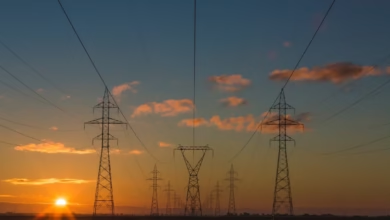Innovations in Energy Research and Development: Driving the Global Energy Transition Towards a Sustainable Future

As the world grapples with the urgent challenges posed by climate change and energy security, the need for innovative solutions in energy research and development (R&D) has never been more critical. The transition from fossil fuels to renewable energy sources is not just a trend; it is a necessary shift that influences global energy markets and policy decisions. This article delves into the latest advancements in energy technology, showcasing how pioneering innovations are shaping a sustainable future.
From the rise of solar power and wind energy to breakthroughs in hydrogen energy and energy storage, the landscape of energy R&D is rapidly evolving. Additionally, we explore the integral role of energy efficiency and smart grids in transforming energy markets, ensuring that resources are used optimally and sustainably. As we navigate through the complexities of the energy transition, it is essential to understand the implications of these advancements on energy imports and exports, energy economics, and the broader context of climate change. Join us as we uncover the cutting-edge technologies and strategies that are driving the evolution of energy, paving the way for a greener tomorrow.
- 1. Innovations in Energy R&D: Pioneering Technologies for a Sustainable Future
- 2. The Role of Renewable Energy in the Global Energy Transition: Trends and Impacts
- 3. Energy Efficiency and Smart Grids: Transforming Energy Markets for a Greener Tomorrow
1. Innovations in Energy R&D: Pioneering Technologies for a Sustainable Future
Innovations in energy research and development (R&D) are crucial to paving the way for a sustainable future. As the world grapples with climate change and the need to transition away from fossil fuels, groundbreaking technologies are emerging that promise to reshape the energy landscape. These pioneering solutions span across various sectors, including renewable energy, energy storage, and energy efficiency, all of which play a vital role in the global energy transition.
One of the most promising innovations in energy R&D is the advancement of solar power and wind energy technologies. Enhanced photovoltaic materials and wind turbine designs are leading to greater efficiency and lower costs, making these green energy sources more accessible. The integration of smart grids enables real-time monitoring and management of energy consumption, allowing for more effective utilization of renewable resources while ensuring energy security.
Another significant development is in energy storage solutions. As renewable energy sources like solar and wind are intermittent, effective energy storage technologies, such as advanced batteries and thermal energy storage systems, are essential. These innovations not only help in balancing supply and demand in energy markets but also support the integration of electric vehicles (EVs) into the grid, promoting energy efficiency and reducing reliance on fossil fuels.
Hydrogen energy is also gaining traction as a versatile energy carrier. Research is focusing on green hydrogen production through electrolysis powered by renewable energy sources, which can decarbonize sectors that are hard to electrify. Additionally, carbon capture technologies are being developed to mitigate emissions from fossil fuel usage while facilitating a smoother transition to cleaner energy options.
Bioenergy, particularly from waste materials, is another area of innovation, contributing to a circular economy by utilizing resources that would otherwise go to waste. Moreover, offshore energy developments, including floating wind farms and tidal energy, are expanding the avenues for harnessing renewable energy.
Energy investments are increasingly directed toward these innovative technologies, driven by energy policy frameworks that prioritize sustainability and climate resilience. As countries navigate energy imports and exports, understanding energy economics becomes crucial in optimizing resource allocation and enhancing energy security.
In summary, the innovations occurring in energy R&D are not just technological advancements; they represent a significant shift towards a sustainable energy future. By embracing these pioneering technologies, we can effectively address global energy trends and ensure a stable, efficient, and sustainable energy landscape for generations to come.
2. The Role of Renewable Energy in the Global Energy Transition: Trends and Impacts
The global energy transition is fundamentally reshaping energy markets and policies, driven by the urgent need to address climate change and reduce reliance on fossil fuels. Renewable energy has emerged as a pivotal player in this transformation, with advancements in technology and increased investment leading to significant trends and impacts on energy systems worldwide.
One of the most notable trends is the rapid growth of solar power and wind energy, which have become leading sources of green energy. According to the International Renewable Energy Agency (IRENA), the capacity for solar power has increased exponentially, making it one of the most cost-effective sources of electricity in many regions (IRENA, 2022). Similarly, wind energy continues to expand, with both onshore and offshore installations contributing to the diversification of energy sources. This shift not only enhances energy security by reducing dependency on imported fossil fuels but also fosters energy independence for many countries.
Energy efficiency remains a critical component of the renewable energy landscape. Innovations in energy storage technologies, such as batteries and thermal energy storage, are essential for managing supply and demand fluctuations associated with renewable energy generation. These advancements enable better integration of renewable sources into existing energy infrastructures, leading to more reliable and resilient energy systems. Smart grids play a crucial role in this integration, facilitating real-time data management and optimizing energy transportation across networks.
The role of bioenergy and hydropower cannot be overlooked in this transition. These renewable sources contribute significantly to energy supply, particularly in regions with abundant natural resources. However, it is essential to balance the development of bioenergy with sustainable practices to avoid negative impacts on food security and land use.
Carbon capture technologies are also gaining traction as part of the broader strategy to mitigate climate change. By capturing emissions from fossil fuel-based power generation and industrial processes, these technologies can help transition to a low-carbon economy while maintaining energy production from existing infrastructure.
In the realm of energy economics, the shift towards renewable energy is influencing global energy trends and investment patterns. Countries are increasingly prioritizing energy R&D to foster innovations that enhance energy efficiency and reduce costs. This focus not only supports domestic energy markets but also positions nations as leaders in the growing renewable energy sector, affecting energy exports and imports on a global scale.
As electric vehicles become more prevalent, their integration into the energy system will further impact energy demand and consumption patterns. The interplay between transportation and energy sectors highlights the importance of a holistic approach to energy policy that encompasses all facets of the energy transition.
In summary, the role of renewable energy in the global energy transition is multifaceted, driving significant changes in energy markets, enhancing energy security, and fostering innovations that pave the way for a sustainable energy future. As the world continues to navigate the challenges of climate change, the commitment to renewable energy will be crucial in shaping a low-carbon economy that benefits both people and the planet.
References:
International Renewable Energy Agency. (2022). Renewable Power Generation Costs in 2021. Retrieved from [IRENA](https://www.irena.org/publications)
3. Energy Efficiency and Smart Grids: Transforming Energy Markets for a Greener Tomorrow
The ongoing energy transition is reshaping the global energy landscape, emphasizing energy efficiency and the implementation of smart grids as pivotal elements for a greener tomorrow. As nations strive to reduce their reliance on fossil fuels and move towards renewable energy sources, the integration of advanced technologies is becoming increasingly important in transforming energy markets.
Energy efficiency plays a critical role in minimizing waste and optimizing the use of resources across various sectors. By enhancing energy performance in buildings, transportation, and industrial processes, countries can significantly reduce their carbon footprint, contributing to climate change mitigation efforts. Smart grids facilitate this process by incorporating digital technologies that allow for real-time monitoring and management of energy consumption. This not only improves energy efficiency but also enhances energy security, making it easier for consumers to engage with and manage their energy usage.
The rise of smart grids is particularly relevant in the context of distributed energy resources (DERs), such as solar power, wind energy, and hydropower. These renewable energy sources can be seamlessly integrated into the grid, allowing for more localized energy production and consumption. This shift not only empowers communities but also paves the way for innovative energy markets that prioritize green energy solutions.
Moreover, the advancement of energy storage technologies is essential for maximizing the potential of renewable energy. By capturing surplus energy generated during peak production times, energy storage systems can provide a reliable supply even when the sun isn't shining or the wind isn't blowing. This capability is vital for balancing supply and demand, ensuring that energy remains available to consumers without compromising the stability of the grid.
In addition to supporting energy efficiency and renewable integration, smart grids also foster the growth of electric vehicles (EVs) and hydrogen energy solutions. By providing the necessary infrastructure for EV charging and facilitating the production and distribution of hydrogen energy, smart grids enable a more sustainable transportation system and contribute to overall energy innovations.
As governments and investors prioritize energy R&D and policies that promote sustainable practices, the future of energy markets will be increasingly driven by advancements in smart grid technology and energy efficiency measures. This transformation not only positions nations to reduce their dependence on fossil fuels but also enhances their ability to adapt to global energy trends while ensuring energy exports and imports align with climate goals.
In conclusion, the synergy between energy efficiency and smart grids represents a crucial step towards a sustainable energy future. By embracing these innovations, we can create resilient energy systems that support a transition to renewable energy, enhance energy security, and ultimately contribute to a greener tomorrow.
References:
– International Energy Agency. (2023). World Energy Outlook 2023. Retrieved from [IEA](https://www.iea.org/reports/world-energy-outlook-2023)
– U.S. Department of Energy. (2023). Smart Grid: An Introduction. Retrieved from [DOE](https://www.energy.gov/oe/activities/technology-development/grid-modernization-and-smart-grid)
– National Renewable Energy Laboratory. (2023). Energy Efficiency and Renewable Energy. Retrieved from [NREL](https://www.nrel.gov/research/energy-efficiency.html)
In conclusion, the landscape of energy research and development is undergoing a remarkable transformation, driven by innovations that pave the way for a sustainable future. As we explore pioneering technologies—from solar power and wind energy to advanced energy storage solutions and hydrogen energy—we see a clear path toward reducing our reliance on fossil fuels and embracing renewable energy sources. The role of renewable energy is crucial in the global energy transition, impacting energy security and shaping energy markets worldwide.
The integration of energy efficiency measures and smart grids is revolutionizing how we approach energy consumption, enabling smarter energy transportation and enhanced energy economics. Additionally, investments in offshore energy, thermal energy, and bioenergy are diversifying our energy portfolio, contributing to a more resilient energy infrastructure.
As we address climate change and implement effective energy policies, the commitment to carbon capture and distributed energy systems will become essential in achieving our climate goals. The potential for energy exports and imports will also play a significant role in balancing global energy trends, ensuring that nations benefit from shared innovations and advancements.
The journey toward a greener tomorrow hinges on our collective efforts in energy R&D, and by prioritizing these innovations, we can create a sustainable energy ecosystem that meets the demands of our ever-evolving world. The future of energy is not just about technology; it’s about fostering a holistic approach that encompasses environmental stewardship and economic viability, ensuring that we leave a healthier planet for generations to come.
References:
Add references here as needed.





